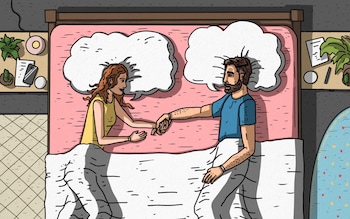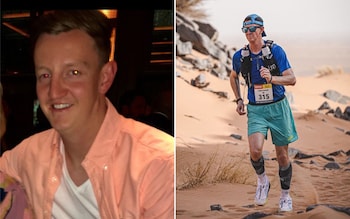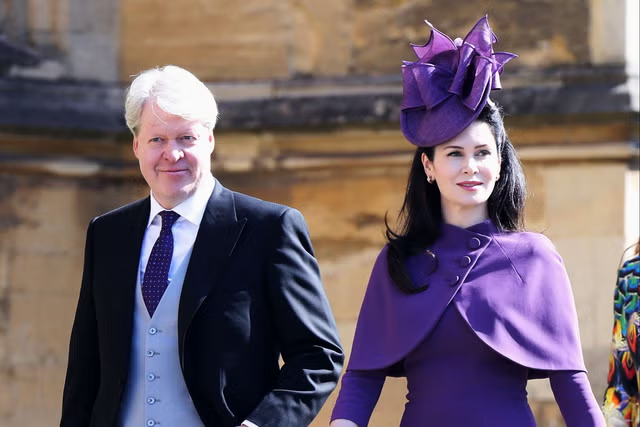Who is Michael Mosley? This is the punchline of a joke Michael was telling me last week over dinner at the Hay Festival. He was very aware of the fragile and transient nature of TV popularity that for him had lasted several decades and saw no signs of fading.
I first met Michael about 20 years ago and we hit it off. He interviewed me for a TV documentary at St Thomas’ Hospital on ageing if I remember. We were talking about twin studies and he was fascinated by our work and had an insatiable appetite to learn more. He was unlike other TV presenters of the time, using his medical knowledge to great effect and always bringing the most out of the material with practical experiments, usually on himself.
We were immediately on the same wavelength and he told me how he had switched from medical school to the BBC and then briefly to the City which he hated, then back to the BBC, producing science programmes at the top level like Tomorrow’s World and The Human Body, winning many awards. Then one day he switched to being a TV presenter, then becoming an international bestselling medical author and columnist, which he loved.

Over the next few years, we did a few short science and health programmes together and then we met at a New Year’s drink party in 2013 just after his book The Fast Diet had come out. He was very modest and said he was rather shocked it was a bestseller as he and his co-author, Mimi Spencer, had written it in just a few weeks, and his previous science books had flopped. But this one went on to sell millions of copies around the world. Its impact was huge as the public learned that they could skip a few meals without harm, and importantly empowered people to alter their lifestyle themselves to reduce diabetes and obesity.
Recipes and other self-help books followed and with his GP wife, Clare Bailey, who he had met at medical school, helped thousands of people with Type 2 diabetes come off their drugs and realise the vital importance of food and exercise rather than relying on medicine. Many people with diabetes such as the ex-Labour MP Tom Watson regarded him as their hero who had been the catalyst that changed their lives for the better.

We performed together several times on stage and it was always fun and unplanned. Last year at the Hay Festival, we recorded a live Just one thing for the BBC about the benefits of a diverse plant diet and he went wildly off script which kept everyone, especially the production team on their toes. We were due to record together another ZOE podcast next week about his latest thoughts about improving sleep which would have had no script and we were both looking forward to it.
As Michael admitted, his wife Clare, who had the cooking skills and also the diabetes knowledge from treating patients for over 20 years, was essential to his success. Together, they were an amazing team with complementary skills, with Clare generally preventing him doing anything “too daft”. But he did plenty of crazy stuff anyway, from eating tapeworms, to long-term fasts, to ice baths and staying awake for days on end.

He was upset that the BBC and Channel 4 had said he couldn’t do any more cold water stunts because the insurance was becoming too high. Our last ski trip together he was as usual, going far too fast and crashed hurting his back but after a brief rest was back on the slopes, as eager and energetic as ever.
I think this combination of recklessness and his humble, calm and self-deprecating style as he carefully explained complex science in simple terms, were why the public loved him. We also loved it when he didn’t always do it perfectly himself. He was far from perfect and never ran marathons (he hated running) or had big muscles and a six-pack and he was constantly battling with pre-diabetes and his weight, as he confessed to having an appetite like a labrador.
He suffered from insomnia and never managed to find the cure for that, although must have tried hundreds of remedies; he did tell me recently that deep-breathing exercises did now sometimes help him get back to sleep. He was probably kept awake by a brain that didn’t stop whirring and coming up with new plans and ideas. His endless scientific curiosity made him special though and just last week was thinking of the next big project and new ideas he could share with the public.

Despite his impressive extrovert on-stage persona, Michael was actually quite shy and took time to know well. When you did you found a warm-hearted and committed friend. He was immensely proud of his four children and they were a close family that kept him grounded and will be devastated that he left them so soon.
What I will miss most about Michael is not just his friendship and generosity but his amazing positivity. These exuded through him, his books and his broadcasts, this meant that however grim things might look, the message was don’t just complain about the health service, or bemoan your luck, there was always “just one thing” you could do yourself to improve the situation. I think that’s a pretty good legacy. We’ll miss you, Michael.
Disclaimer: The copyright of this article belongs to the original author. Reposting this article is solely for the purpose of information dissemination and does not constitute any investment advice. If there is any infringement, please contact us immediately. We will make corrections or deletions as necessary. Thank you.



